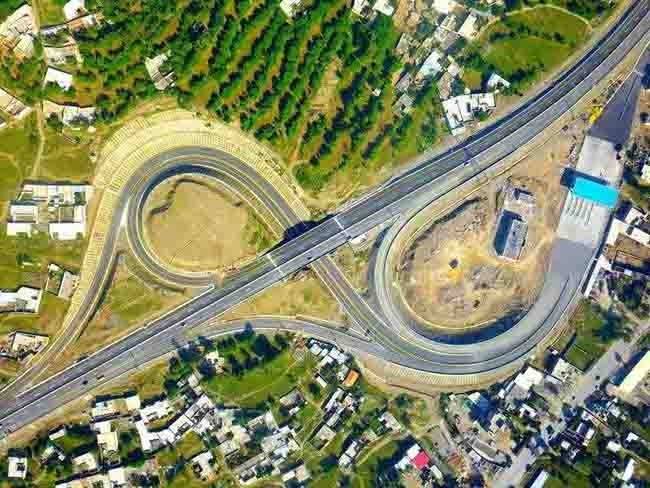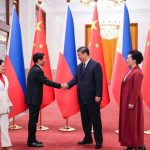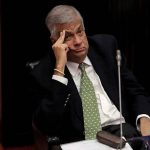Experts believe that there are multiple reasons for Beijing’s reticence, but that political instability tops the list…reports Asian Lite News
China has rejected the calls for investing in fresh Belt and Road projects in Pakistan, citing political uncertainty and deteriorating security plaguing Islamabad, Nikkei Asia reported.
TXergy, climate change, electricity transmission lines and tourism under the China-Pakistan Economic Corridor (CPEC) — the USD 50 billion Pakistani component of the Belt and Road.
Nikkei Asia reported citing minutes of the meeting, that Beijing declined Islamabad’s proposal to build a 500-kilovolt transmission line to connect the southern port of Gwadar — a focus of Chinese infrastructure investment — to the national electricity grid from Karachi, according to the officials.
At the same time, Beijing also forced Islamabad to drop its objections to a 300-megawatt coal-fired power plant in Gwadar, which Islamabad wanted to move to another location where domestic rather than imported coal could be used.
The 11th meeting of the Joint Cooperation Committee (JCC), the top decision-making body for CPEC, took place in October last year, but the minutes were signed in July. The officials confirmed local media reports that also highlighted China’s reluctance to deepen its presence in Pakistan, Nikkei Asia reported.
Responding to those reports, Pakistan’s Ministry of Planning and Development downplayed Beijing’s standoffishness, stating that “China and Pakistan are committed to expanding the scope of [CPEC] to include new areas of cooperation, such as water resources management, climate change and tourism”.
However, as China marks the 10th anniversary of the Belt and Road Initiative — its massive endeavor to expand its influence and build infrastructure stretching from Asia to Europe and Africa — Beijing appears to be growing more selective, particularly at a time when its own economy is slowing down, according to Nikkei Asia.
“Like any investment process, China is adapting its BRI investment process based on experience and a deeper understanding of how to more effectively align investments with strategic objectives,” Nikkei Asia quoted Andy Mok, a senior research fellow at the Center for China and Globalization, a Beijing think tank.
“China’s approach to Belt and Road investments is guided by prudence and long-term sustainability. Concerns like political instability in partner countries like Pakistan necessitate greater caution, especially regarding the safety of Chinese nationals,” Mok said.
He added, “In the midst of global and domestic challenges, aligning investments closely with China’s strategic interests is essential for the initiative’s long-term success”.
Meanwhile, Pakistan has been in a state of political upheaval since former Prime Minister Imran Khan’s government was toppled in April 2022, prompting multiple bouts of civil unrest. In recent years, militants have also repeatedly targeted Chinese interests, including an ambush of engineers in August that was thwarted by security forces, Nikkei Asia reported.
Underlining Pakistan’s deteriorating security situation overall, terrorists carried out a pair of deadly suicide bombings last week.
Experts believe that there are multiple reasons for Beijing’s reticence, but that political instability tops the list.
Jeremy Garlick, an associate professor of international relations at Prague University of Economics and Business, said Pakistan has proved to be a hotbed of social disorder and violence.
“Although China needs Pakistan as a partner for geopolitical reasons, the Chinese are reluctant to commit more funds than necessary,” he said.
James M Dorsey, a senior fellow at the S Rajaratnam School of International Studies in Singapore, told Nikkei that Pakistan’s renewed wave of violence has disrupted the investment climate.
“Chinese believe that security of their personnel and assets is in jeopardy in Pakistan,” Dorsey said.
Pakistan has agreed to further beef up security for Chinese personnel involved in CPEC projects, according to local media. Bulletproof vehicles, for example, are to be used for all movement of Chinese workers. But there are other reasons for Beijing to dislike what it sees in Pakistan, experts say.
Qamar Cheema, a strategic and political analyst based in Islamabad, said the political class in Pakistan has a tendency to treat CPEC projects as investments in their constituencies for winning elections, rather than an economic collaboration between Pakistan and China. After a delay, the country is now expected to go to the polls at the end of January, according to Nikkei Asia.
At the same time, there is the question of whether further investments in CPEC make economic sense for China. Observers say that from the Chinese perspective, economic gains from the endeavour, at least in the short term, look increasingly dicey.
Muhammad Tayyab Safdar, assistant professor of global studies at the University of Virginia, pointed to USD1.2 billion in overdue payments to Chinese power producers. Pakistan has struggled to pay them due to its serious cash shortage.
“[The Chinese will] still make money, but with much angst, at least in the power sector,” Safdar said.
Garlick argued that the Chinese government “does not believe anymore that it can get economic returns from CPEC.” In his view, China’s slow pattern of investment and reluctance to loan more money show that Beijing does not believe in CPEC as a driver of economic growth for itself or the region.
Pakistani government officials interviewed on background insisted they remain optimistic that China will resume CPEC investments once the elections are held early next year.
Qamar Cheema, the analyst in Islamabad, suggested this is possible since the South Asian nation of over 240 million is too important to be ignored. China is “making Pakistan realize that its part of the bargain must be fulfilled to win investors’ confidence,” Cheema said, adding that Beijing may opt to invest more once a new government with a fresh mandate takes office in Islamabad, Nikkei Asia reported.
Jeremy Garlick, however, was not so sure. “Pakistan has shown itself to be an inherently unstable political entity,” he said. “The Beijing government has seen enough over the years to know that Pakistan achieving stability and steady economic growth is an unlikely prospect,” Nikkei Asia quoted him as saying. (ANI)














